
Lathom Hall is a former cinema and music venue in Seaforth, England. [1] Built in 1884, the venue became synonymous with Merseybeat in the 1960s. [1]

Lathom Hall is a former cinema and music venue in Seaforth, England. [1] Built in 1884, the venue became synonymous with Merseybeat in the 1960s. [1]
On 14 May 1960, the Silver Beatles auditioned at the hall during the interval of a performance by Cliff Roberts and the Rockers, Dick Dale and the Deltones, and King Size Taylor and the Dominoes. [2] One report suggests that the venue's promoter, Brian Kelly, curtailed the group's set after just two songs as they performed so badly. [2] Conversely, the Bootle Times reported that the group were "sensational". [2] After the performances, a fight broke out backstage after bassist Stuart Sutcliffe was told to "cut [his] hair" as he looked like a girl. [3] Despite this and their group's performance, Kelly booked the group for the following weekend's dance, promoting them as "Silver Beetles" in the headline slot. The group later failed to notify Kelly that they could not play at the performance, having received an offer to tour Scotland with Johnny Gentle, [4] leaving him to explain to the audience why the advertised act would not appear.
Nevertheless, the group were booked for a number of subsequent concerts in early 1961, [1] by which time they had changed their name to The Beatles. Kelly paid the group an average of £8 0s 10d per concert, [1] equivalent to approximately £120 in 2005. [5] The group's final appearance at the hall was on 25 February, George Harrison's 18th birthday. [6]
Stuart Sutcliffe, who was the band's bassist at this time, would go on to die of a brain aneurysm 16 months later in Hamburg. A definitive cause is unknown, but it has been linked to the traumatic head injury he received during a fight outside Lathom Hall following one of the Beatles' performances in January 1961. [7] According to former manager Allan Williams, Sutcliffe was either kicked in the head or thrown head first against a brick wall. Lennon and Best went to his aid fighting off his attackers before dragging him to safety. Sutcliffe had a fractured skull, and Lennon broke his little finger. [8] Sutcliffe refused medical attention at the time and failed to keep an X-ray appointment at Sefton General Hospital. [9]
After the popularity of Merseybeat subsided, the hall started to be used as a Royal Navy club before lying derelict for a number of years. [10] In 1989, it was purchased by Brian Corrigan, who renovated the hall and reopened it as a bar and function venue decorated with Merseybeat memorabilia. [10]
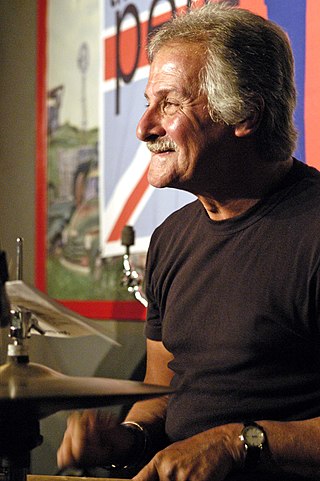
Randolph Peter Best is an English musician who was the drummer for the Beatles from 1960 to 1962. He was dismissed shortly before the band achieved worldwide fame and is one of several people referred to as a fifth Beatle.
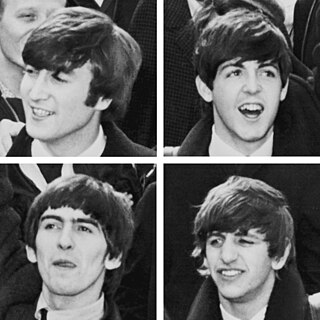
The Beatles were an English rock band formed in Liverpool in 1960. The core lineup of the band comprised John Lennon, Paul McCartney, George Harrison and Ringo Starr. They are widely regarded as the most influential band in Western popular music and were integral to the development of 1960s counterculture and the recognition of popular music as an art form. Rooted in skiffle, beat and 1950s rock 'n' roll, their sound incorporated elements of classical music and traditional pop in innovative ways. The band also explored music styles ranging from folk and Indian music to psychedelia and hard rock. As pioneers in recording, songwriting and artistic presentation, the Beatles revolutionised many aspects of the music industry and were often publicised as leaders of the era's youth and sociocultural movements.
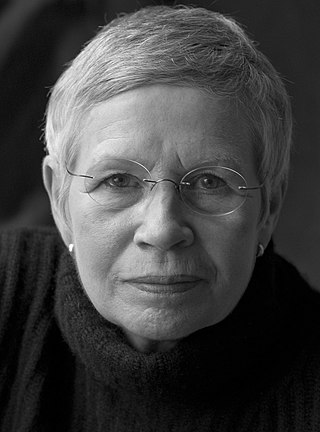
Astrid Kirchherr was a German photographer and artist known for her association with the Beatles and her photographs of the band's original members – John Lennon, Paul McCartney, George Harrison, Stuart Sutcliffe and Pete Best – during their early days in Hamburg.
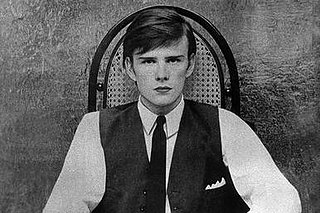
Stuart Fergusson Victor Sutcliffe was a British painter and musician from Edinburgh, Scotland, best known as the original bass guitarist of the Beatles. Sutcliffe left the band to pursue his career as a painter, having previously attended the Liverpool College of Art. Sutcliffe and John Lennon are credited with inventing the name "Beetles" (sic), as they both liked Buddy Holly's band, the Crickets. They also had a fascination with group names with double meanings, so Lennon then came up with "The Beatles", from the word beat. As a member of the group when it was a five-piece band, Sutcliffe is one of several who are sometimes referred to as the "Fifth Beatle".

The Quarrymen are a British skiffle and rock and roll group, formed by John Lennon in Liverpool in 1956, which evolved into the Beatles in 1960. Originally consisting of Lennon and several school friends, the Quarrymen took their name from a line in the school song of their school, the Quarry Bank High School. Lennon's mother, Julia, taught her son to play the banjo, showed Lennon and Eric Griffiths how to tune their guitars in a similar way to the banjo, and taught them simple chords and songs.

Brian Samuel Epstein was an English music entrepreneur who managed the Beatles from 1961 until his death in 1967.

Alice Mona Best was a British music club proprietor, best known as the owner of The Casbah Coffee Club, a club in Liverpool which served as a venue for rock and roll music during the late 1950s and 1960s. Among the bands to play at The Casbah was the Beatles, for whom her son Pete Best was a drummer at the time. Mona Best also had two other sons, John Rory, and Vincent "Roag" Best. It was later confirmed that Roag's father was Beatles' associate, music executive Neil Aspinall, although he was not registered as the father on Roag's birth certificate.

Rory Storm was an English musician and vocalist. Born in Liverpool, Storm was the singer and leader of Rory Storm and the Hurricanes, a Liverpudlian band who were contemporaries of the Beatles in the late 1950s and early 1960s. Ringo Starr was the drummer for the Hurricanes before joining the Beatles in August 1962.

Mersey Beat was a music publication in Liverpool, England in the early 1960s. It was founded by Bill Harry, who was one of John Lennon's classmates at Liverpool Art College. The paper carried news about all the local Liverpool bands, and stars who came to town to perform.

"Baby's in Black" is a song by the English rock band the Beatles, co-written by John Lennon and Paul McCartney. It appears on the United Kingdom album Beatles for Sale and on the United States album Beatles '65, both released in 1964.
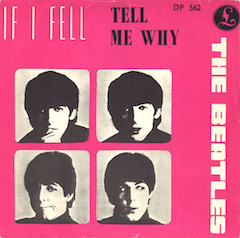
"Tell Me Why" is a song by English rock band the Beatles from their album A Hard Day's Night. In North America, it was released on both the American version of A Hard Day's Night and the album Something New. Credited to Lennon–McCartney, it was written by John Lennon in either Paris or New York City, and recorded in eight takes on 27 February 1964.

Allan Richard Williams was a British businessman and promoter who was the original booking agent and first manager of the Beatles. He drove the van to take the young band to Hamburg, West Germany, in 1960, where they gained the vital show business experience that led to their emergence on the world stage. Williams was also a promoter and agent of a number of other Liverpool rock acts, helping stoke the Merseybeat boom of the early 1960s.
William Harry is the creator of Mersey Beat, a newspaper of the early 1960s which focused on the Liverpool music scene. Harry had previously started various magazines and newspapers, such as Biped and Premier, while at Liverpool's Junior School of Art. He later attended the Liverpool College of Art, where his fellow students included John Lennon and Stuart Sutcliffe, who both later performed with the Beatles. He published a magazine, Jazz, in 1958, and worked as an assistant editor on the University of Liverpool's charity magazine, Pantosphinx.

In His Own Write is a 1964 nonsense book by the English musician John Lennon. Lennon's first book, it consists of poems and short stories ranging from eight lines to three pages, as well as illustrations.

Alfred Lennon, also known as Freddie Lennon, was an English seaman and singer who was best known as the father of musician John Lennon. Alfred spent many years in an orphanage with his sister, Edith, after his father died.
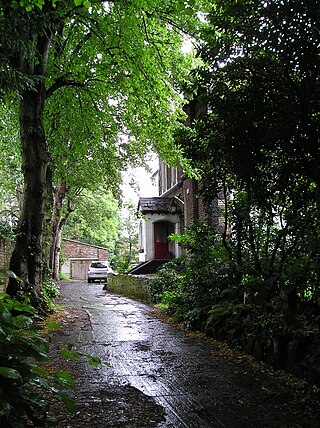
The Casbah Coffee Club, officially Casbah Club, was a rock and roll music venue in the West Derby area of Liverpool, England, that operated from 1959 to 1962. Started by Mona Best, mother of early Beatles drummer Pete Best, in the cellar of the family home, the Casbah was planned as a members-only club for her sons Pete and Rory and their friends, to meet and listen to the popular music of the day. Mona came up with the idea of the club after watching a TV report about the 2i's Coffee Bar in London's Soho where several singers had been discovered.
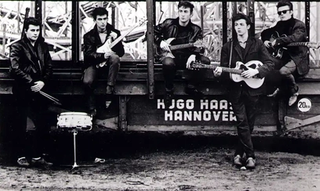
The original lineup of the Beatles, John Lennon, Paul McCartney, George Harrison, Stuart Sutcliffe and Pete Best, regularly performed at different clubs in Hamburg, West Germany, during the period from August 1960 to May 1962; a chapter in the group's history which honed their performance skills, widened their reputation, and led to their first recording, which brought them to the attention of Brian Epstein. In November and December 1962 they played with Ringo Starr on drums.
The Cavern Club at 10 Mathew Street, in Liverpool was the venue where the Beatles' UK popularity started. John Lennon, Paul McCartney, George Harrison and Pete Best were first seen by Brian Epstein at the club. Epstein eventually became their manager, going on to secure them a record contract. Best was replaced by Ringo Starr on 16 August 1962, which upset many Beatles fans. After taunts of, "Pete forever, Ringo never!", one agitated fan headbutted Harrison in the club.
The Beatles were a rock group from Liverpool, England. This timeline chronicles their activities.

The Aintree Institute was a live music venue in Walton, Liverpool, England. From the late 1950s, the venue was associated with Liverpool's growing Merseybeat scene.